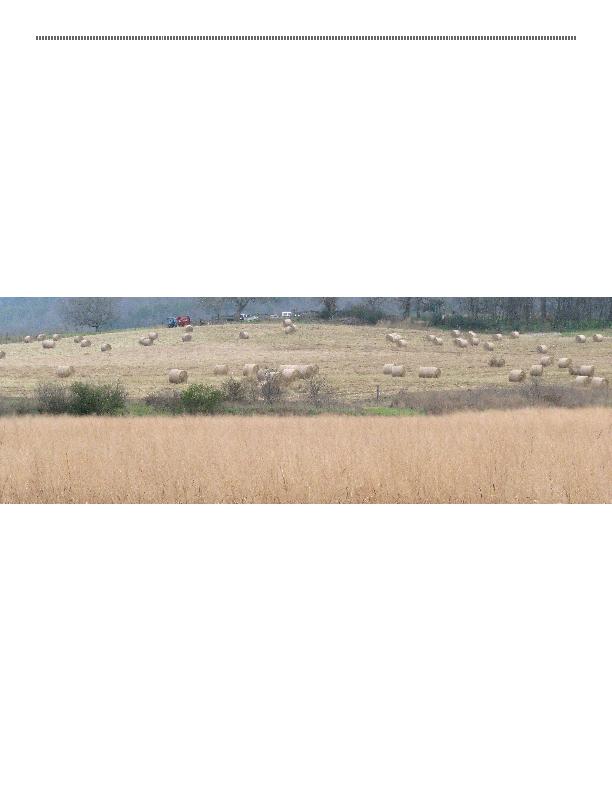
reduced production risk which may lead
to lower compensation.
The purchaser in a production con-
tract supplies and finances nearly all of
the production input and usually owns
the crop during production as well as
after harvest and delivery. The purchaser
makes all or most production decisions
and maintains a managerial position,
often including the right to make field
visits.
Depending on the biorefinery's
specifications for biomass feedstock, the
project owner might take on less overall
business risk if it specifies, or actually
provides to the farmer, the high biomass
sorghum seed to be used to establish the
fied agricultural schedules and practices
in planting and cultivating the crop,
specifies the fertilizer to be applied and
its schedule, and provides a harvesting
contractor to cut, weigh, and retrieve
the biomass from the field. Due to the
purchaser's extensive control over the
details of the farm operation, the farmer
has reduced risk of production as well
as significantly less investment, and is
therefore less likely to be subject to loss
in the event of drought, flood or other
crop failure.
agreement by which a farmer agrees
to sell or deliver all of a specifically-
designated crop grown on identified
acreage to a purchaser. The contract
usually specifies only the price for an
established quality of crop and delivery
procedures for the harvested crop.
contract obtains a buyer and a price
for the crop before it is harvested. The
farmer supplies and finances nearly
all production input and owns the crop
during production. The farmer makes
production decisions and assumes
production-related risks. Because the
farmer undertakes production risks,
compensation is usually reflective of the
The purchaser in a marketing con-
tract buys a known quality and quantity
of a crop for a negotiated price. The pur-
chaser does not own the crop until it is
harvested and delivered and exerts little
influence over production decisions.
A biomass supply contractor for a
cellulosic ethanol plant might enter into
a marketing contract with area farmers.
A farmer would agree to sell the entire
crop on a particular 500 acres to the
supply contractor for three years for a
specified price per ton. The price could
that, for example, includes a factor based
on the price of diesel fuel. Some cel-
lulosic technology conversion processes
are designed to handle biomass derived
from a specific energy crop or with other
specified delivery requirements. In
that case, the marketing contract might
specify that crops must be grown from a
specified seed, or that the biomass must
be delivered to the supply contractor
with no more than a certain percentage
of moisture content, or that it must be
delivered in square bales.
Other State Law
including agricultural products.
for the sale of agricultural products and
are therefore governed by the UCC. State
statues may also specifically govern
agricultural contracts, which provides for
the possibility of conflicting laws.
State statutes that are consistent with
the UCC may supplement, but ordinar-
ily do not supplant, its provisions. To be
consistent with the UCC, a state statute
must be consistent with the text as well
as the purposes and policies of the UCC,
which are: (1) to simplify, clarify and